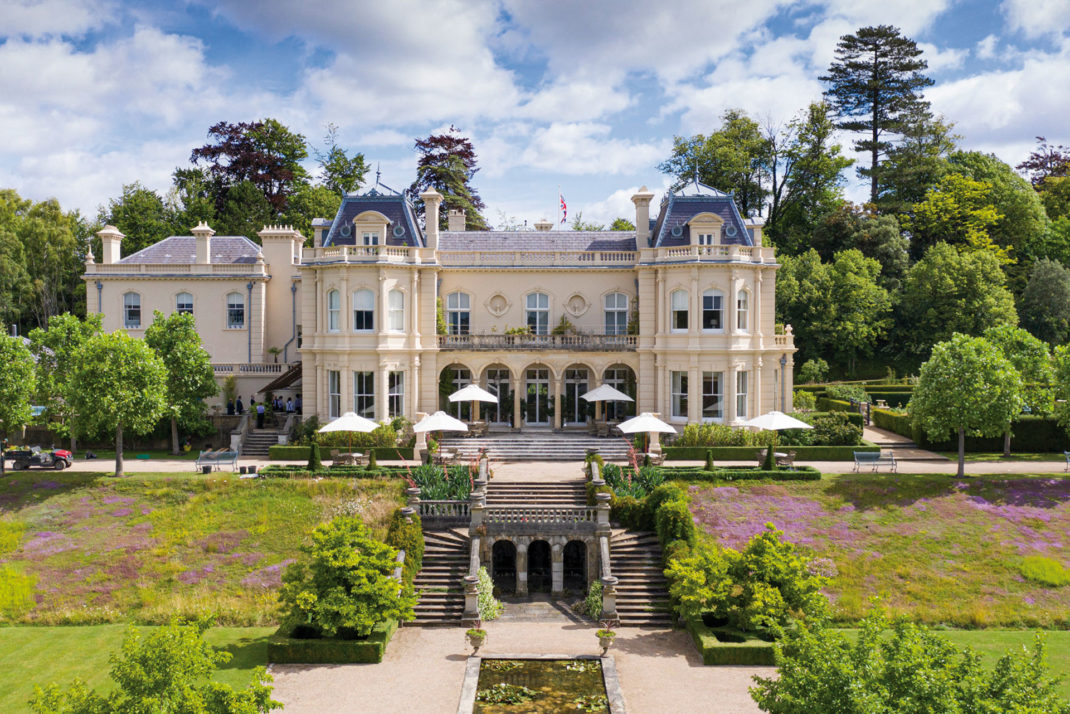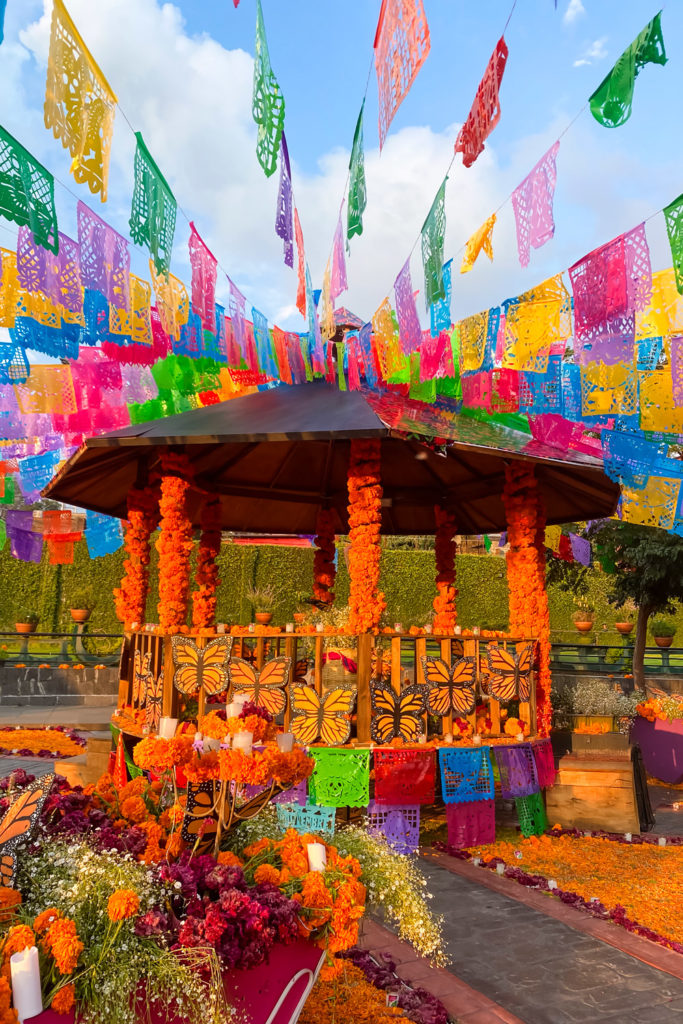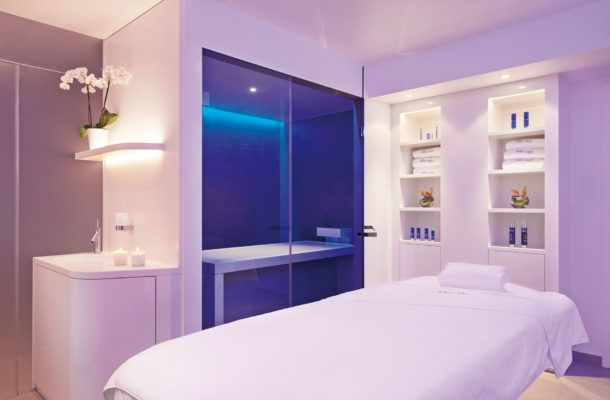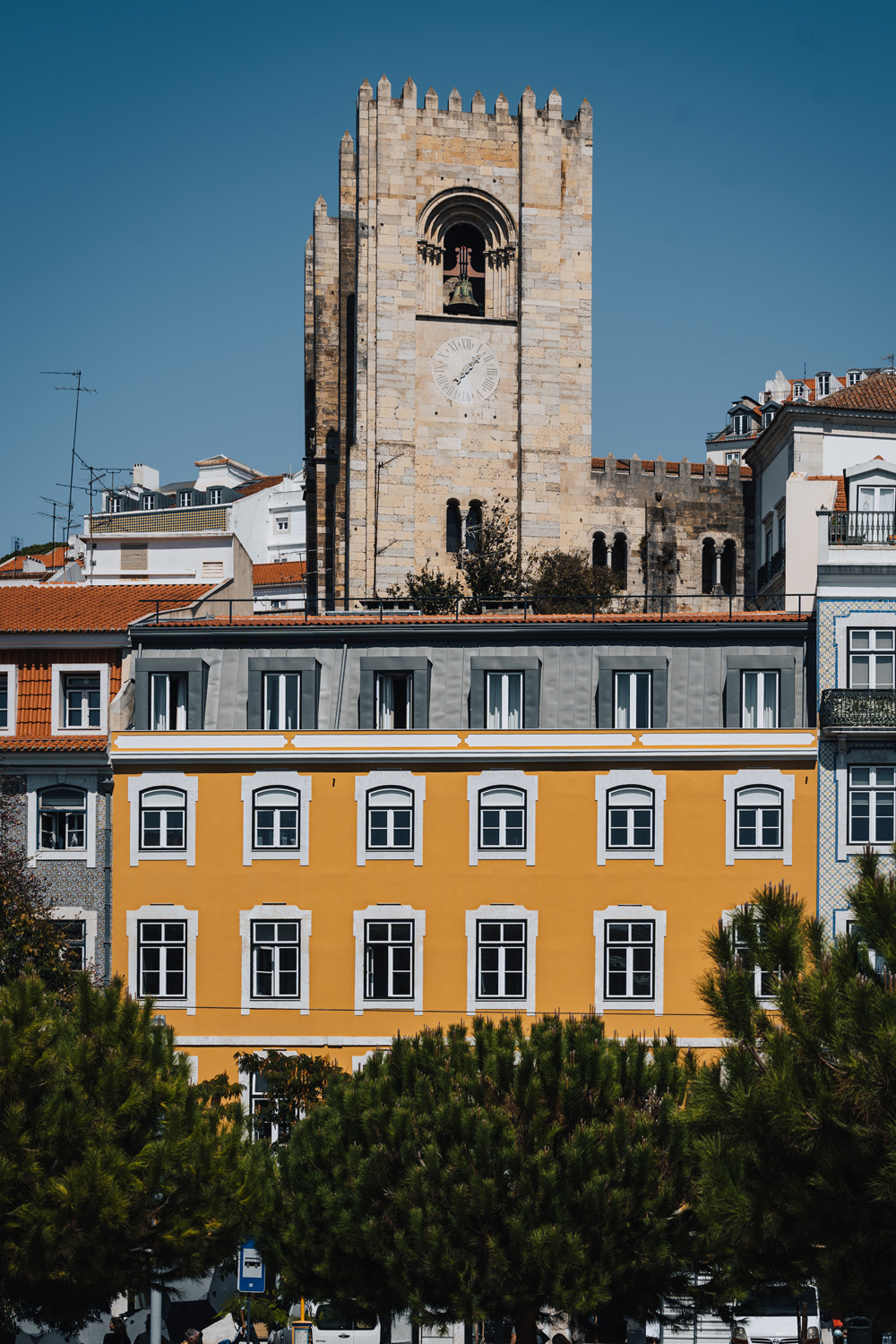
AlmaLusa Alfama: Food & History In The Heart Of Lisbon
By
1 year ago
Felix Milns checks in
A city as varied as the myriad azulejo tiles that artfully adorn its buildings, Lisbon is a city that wears its soul on its sleeve and has music in its heart, with its distinct districts spread across its seven hills. The oldest of them all is the Alfama, the Moorish quarter that somehow survived the great earthquake and tsunami of 1755. The AlmaLusa Alfama is the latest opening from bijoux boutique specialist Almalusa, whose mantra is to rescue heritage buildings from disrepair, sensitively and sustainably restoring them to preserve their historical integrity, while infusing them with a contemporary spirit. The Alfama is a perfect example. Felix Milns checks in.
C&TH Responsible Tourism Guide
Hotel Review: AlmaLusa Alfama, Lisbon
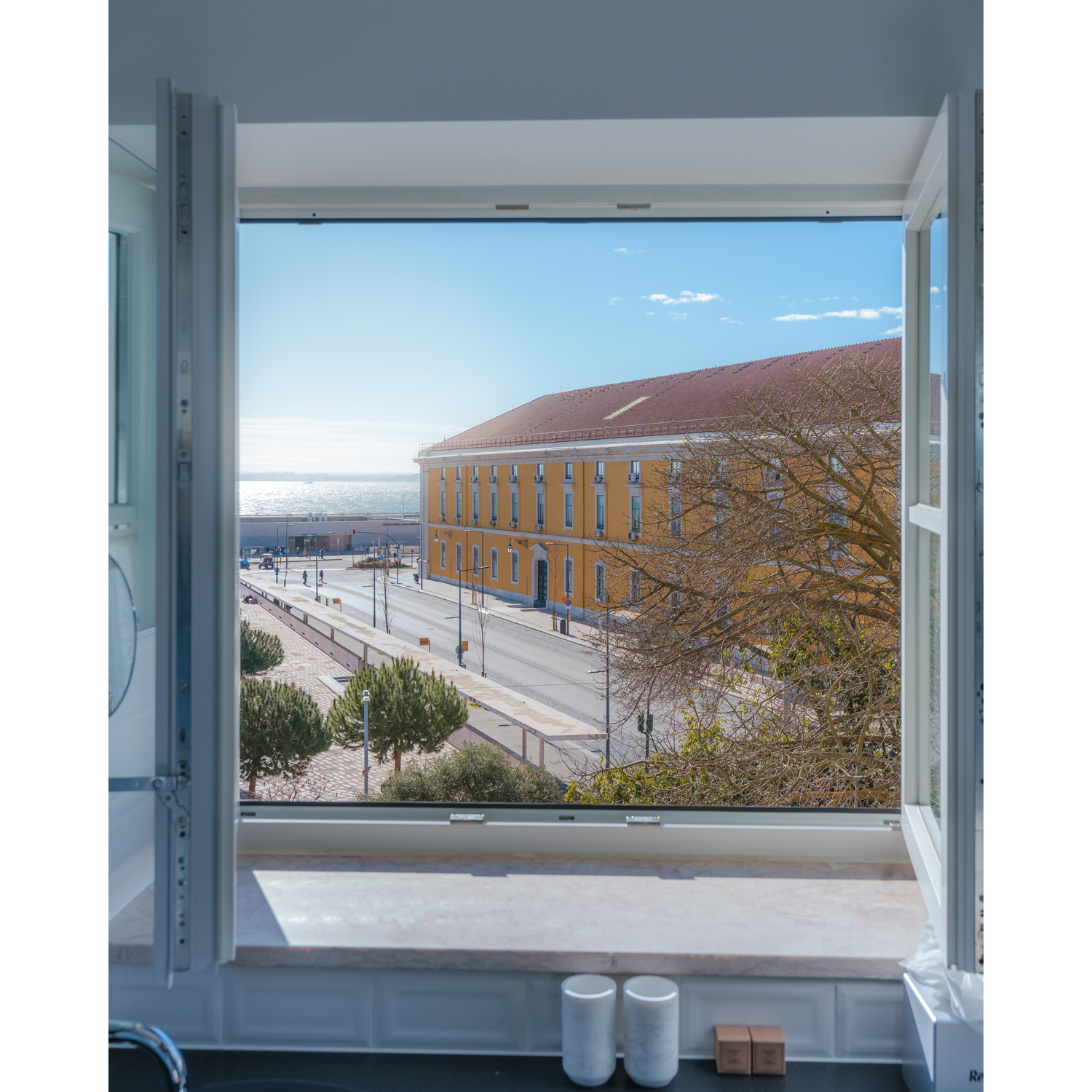
View from the bathroom of a Deluxe Room
STAY
Set back from the riverbank of the majestic Tagus river, the AlmaLusa Alfama occupies a building dating back to the 12th century. It both overlooks the charming Campo das Cebolas square and forms part of the old maritime wall protecting the winding cobbled streets of the Alfama as it rises up the hill behind – making for gorgeous river views and the weight of history behind you.
The calming colours and natural material palette weave a quiet sophistication into the architectural fabric of the building, while contemporary bathrooms and other subtle design touches create a real oasis of calm. Sustenance comes in the form of the Delfina café and bar, a small footprint of ground floor and square that serves breakfast and small plates.

Lisbon
DO
The location is perfect for exploration, with the Praca do Comercio – the main square of the city with its triumphal arch, a five minute walk from the AlmaLusa Alfama. Right next to the hotel entrance is an arched walkway and steps up into the Alfama, which served as the city door to the docks in medieval times. You can lose yourself for hours in the shaded streets that wind up the hill, alighting on small squares and artisan workshops amid the restaurants promising live fado music.
One of the best ways to get a real sense of the city is to take an e-mountain bike tour around the seven hills (freebiketourslisbon.com). There are some steep climbs but anyone comfortable riding a bike should be fine. On these rides, you get great vantage points from across the city and a real understanding of how the different districts weave together, along with some fascinating history and insight along the way. Alternatively, try riding the historic Tram 28: hop-on hop-off public transport that winds through the city.
There are so many small boutiques, reflecting Portugal’s artisanal culture, selling everything from jewellery and scents to the ubiquitous canned sardines, celebrated with ornate decorative shops.
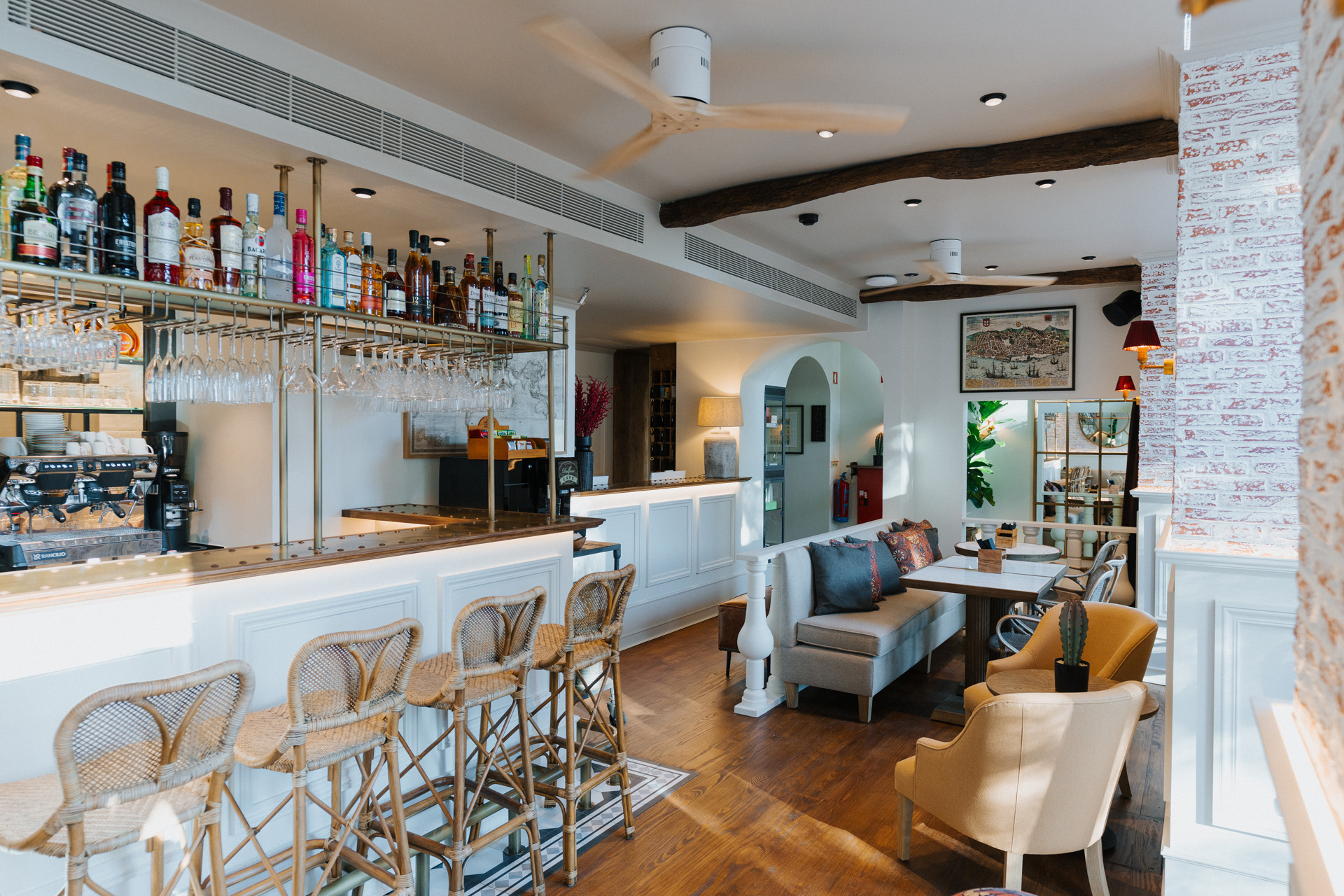
Delfina Café
EAT & DRINK
Talking of sardines, a plate of grilled and salted sardines is a rite of passage throughout the summer months in Lisbon. The Portuguese love to eat from the sea, so octopus, seafood and fish stew with rice and bacalhau (salted cod) is ubiquitous. One of the best iterations I discovered was at the Delfina restaurant at AlmaLusa Alfama’s sister hotel in the Baixa district, simply baked in a pan with potato and caper mayonnaise.
The restaurant scene is incredible here, with the streets bursting with small restaurants. Check out Peixola for some of the finest seafood tapas in the city.
Finally, you cannot leave Lisbon without a pastel de nata pilgrimage. Lisbon is the birthplace of the custard tart, and every year a competition is run to elect the city’s finest.
THE LAST WORD
With its layers of history, culture, music and cuisine Lisbon is hard to beat as a city break, and the AlmaLusa is the perfect base from which to drink, and eat, it all in.
BOOK IT
Double bedrooms at AlmaLusa Alfama start from 165€ per night, including breakfast. Book at almalusahotels.com
Felix was travelling in Portugal when this review was conducted.

